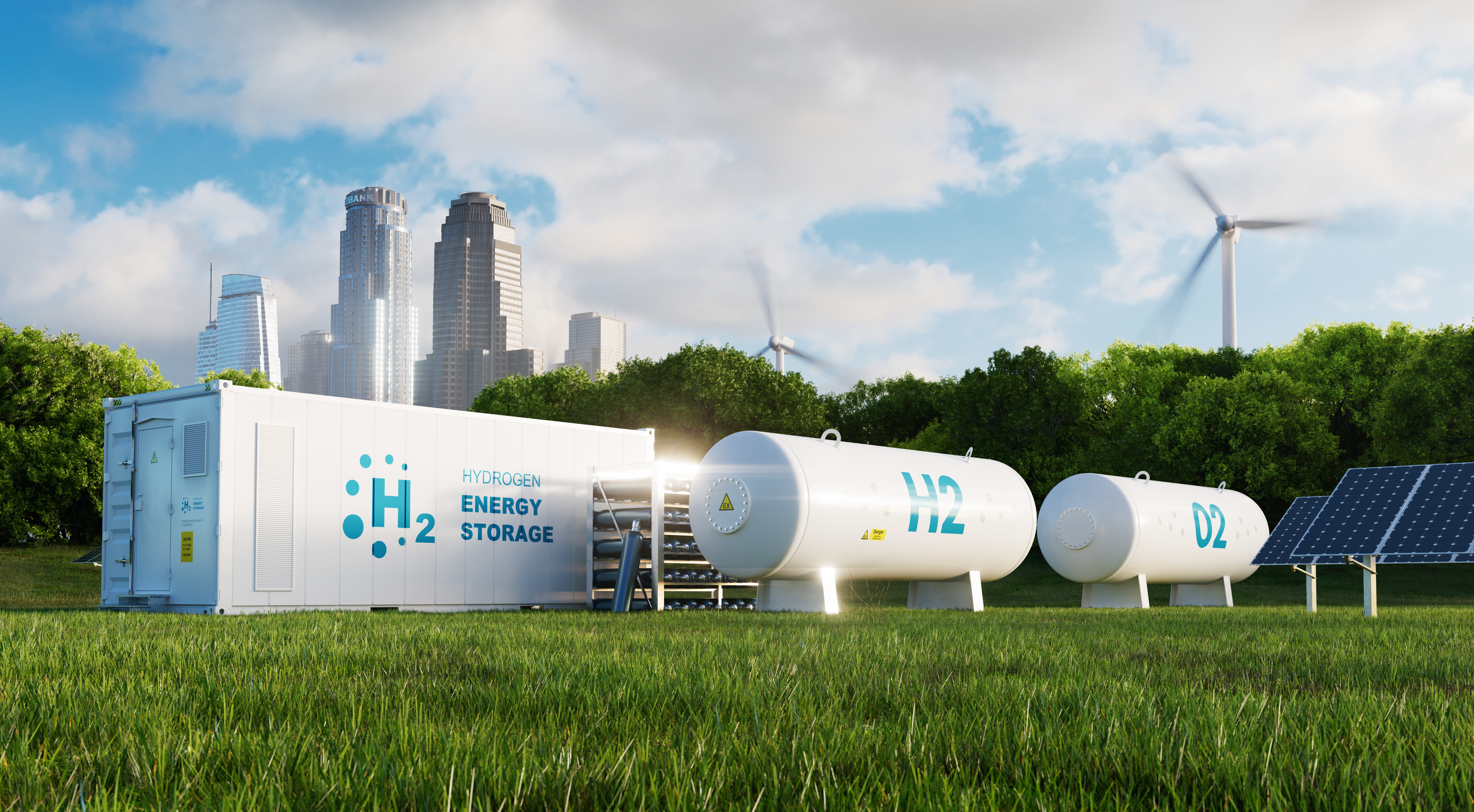A Partnership of Progress: Kiwa & Vinçotte’s Hydrogen Consultancy Services
Colorless, odorless, tasteless: hydrogen is a seemingly humble element, yet we can’t stop raving about it. Green hydrogen is a key player in the generation of sustainable and cleaner energy, addressing the urgent problems of carbon emissions, climate change, and energy security.
Vinçotte, a Belgian accredited inspection and certification organization and member of the Kiwa group, has a keen focus on hydrogen and bringing complementary expertise to the table. Yannick Dandois, Product Manager Process Safety at Vinçotte, explains: “Vinçotte provides consultancy services that range from high-level conceptualization to complex safety engineering details. Kiwa has a focused commitment to the green transition, particularly in the building and certifying of hydrogen plants. Together, we offer a comprehensive approach to compliance & conformity, safety engineering, testing, inspection & certification (TIC) services".
Through seamless collaboration within the Kiwa Group, we ensure comprehensive coverage across all facets of hydrogen-related components and activities. Our expertise spans from individual stacks and electrolyzers to the certification of entire hydrogen plants. Clients can now leverage the combined strength of Kiwa Group, benefiting from a unique blend of expertise. This integrated approach is particularly valuable in addressing the complexities and safety considerations inherent in hydrogen technology.
What makes handling hydrogen such a minefield?
Hydrogen is the smallest and lightest element in the universe, but the technological processes associated with it can be challenging.
Take electrolysis, for example. It is the process of using electricity to split water into hydrogen and oxygen, and it takes place in an electrolyzer. This machine consists of a stack of electrodes that are separated by a thin membrane. A high voltage current is then passed through the stack, causing water molecules to break down and form hydrogen and oxygen gas.
Sounds simple enough, but the problem lies in the contaminated output. “Hydrogen extracted from the electrolysis process often contains residues of lye, water, and oxygen, requiring purification to achieve exceptionally high purity levels up to ≥ 99.9999% for ultrapure hydrogen,” says Yannick.
The intricacies of handling hydrogen post-production are another challenge. “This is especially true in fuel cells for vehicles,” says Yannick. “We have to consider the potential corrosion risks and the impact of water vapor content at high pressures. For instance, compressing hydrogen with even a small percentage of water vapor can lead to condensation issues during the process. Efficient drying procedures are essential.”

Safety at every step
Then there are the numerous safety issues. “As a chemist specializing in process safety, my focus is on conducting hazard and risk assessments, especially in the context of innovative technologies like hydrogen production,” says Yannick. “Hydrogen is a highly flammable gas. One of the primary safety measures is to identify and implement safety functions within the system, including electrolyzers and stacks. Another is to manage storage and transport – hydrogen has to be stored and transported at high pressure, so storage tanks and transport pipelines must meet rigorous requirements, for which our inspections services provide high-performance solutions.”
Hydrogen leaks are also a cause for concern, as the gas cannot be seen or smelt. Not only is a leak a hazard, it’s a waste. Technology has developed over time to give us remote hydrogen sensing that will ensure the detection of any hydrogen leak.
Vinçotte conducts extensive hazard identification sessions (HAZ IP) to assess technology. Whether we’re working with established manufacturers or venturing into uncharted territory with new hydrogen projects, we scrutinize every aspect to identify potential risks and devise solutions.
Powering tomorrow with confidence through certification
With so many technological challenges and safety measures in the world of hydrogen production, the legislative and certification requirements are extensive.
Certification guarantees that a hydrogen process or product meets specified requirements and conforms to set standards. “We first focus on assessing compliance and conformity,” says Yannick. “This involves evaluating the laws that govern installations, right at the start of the design phase. Our goal is to provide clients with a comprehensive plan that ensures they conform to legal requirements and comply with standards".
“We also navigate both economic and social legislation. Economic legislation sets the certification requirements for products entering the European market. This often involves CE certification through organizations like Kiwa. Social legislation, on the other hand, places responsibility on end users such as EPC contractors and operators. In the hydrogen domain, end users with experience and even those with limited experience in this field will benefit from our expertise."
With an extensive hydrogen test laboratory (the only one of its kind in Europe), and expert hydrogen certification and consultancy teams, Kiwa plays a pivotal role in ensuring the safety and reliability of hydrogen production plants, among a spectrum of other integral services within the hydrogen value chain
Hydrogen Consultancy Services is a partnership of progress
It’s clear that the combined knowledge within the Kiwa group creates a unique partnership of great value to our clients. And of course, we are driven by a mutual interest in pure hydrogen that is safely and efficiently produced. “It’s the constant quest for solutions, and the ability to adapt to ever-changing scenarios, that keep the journey in this field both fascinating and rewarding,” says Yannick.
For further information about Kiwa’s Hydrogen Consultancy Services, please contact hydrogen@kiwa.com.


